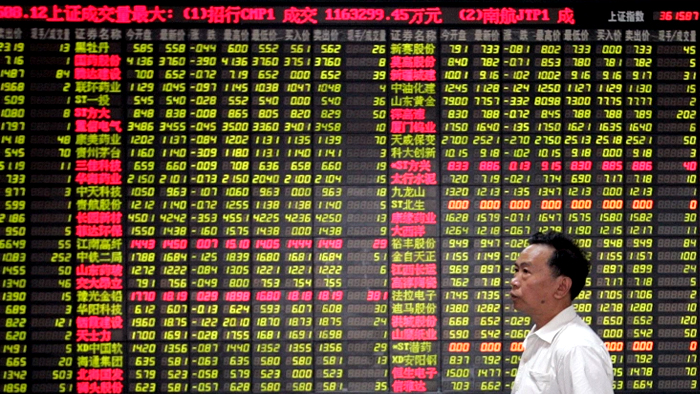China’s reopening will help Asia’s stock markets recover from their lowest levels in three years.

Dealmakers say that China’s expected reopening to the rest of the world after a string of COVID-19 lockdowns will give the Asian equity capital markets a much-needed boost in 2023. Right now, activity in the Asian equity capital markets is at its lowest level in three years.
A loosening of China’s two-year crackdown on the tech sector and a breakthrough for the U.S. audit watchdog to get access to the financial accounts of mainland firms are both seen as good for equity capital markets activity. This includes initial public offerings (IPOs), secondary listings, and follow-on equity sales.
“As China reopens, market activity will come in stages,” said Edward Byun, co-head of equity capital markets in Asia excluding Japan at Goldman Sachs (NYSE:GS). He added that secondary market trading and follow-on capital raising would be the first to benefit.
Related: Asia’s stock market falls because the Fed is sending “hawkish” signals and the central bank is being careful.
“As faith in the recovery grows, we will start to see the conditions for the IPO market to start up again.”
Refinitiv data shows that the value of IPOs in Asia Pacific, which includes Japan, fell by 43.3% this year, while the number of equity capital market deals fell by 52%.
Hong Kong was the market in the region that was hurt the most when IPOs, which used to be a big part of Asia’s financial hub and a big source of fees for the city’s banks, dropped to their lowest level in 10 years.
China’s slow reopening should also get investors to put money back into the world’s second-largest economy, which they haven’t done for the past two years.
The elephant in the room
“Many foreign investors sent money back to the U.S., but China is still the elephant in the room, and you can’t ignore it,” said Harish Raman, head of equity syndicate for Asia Pacific at Citigroup (NYSE:C).
“If you think the U.S. has really peaked and valuations are getting out of hand and you want to take some profit, where are you going to put it?” “It has to go back to China.”
From $28.17 billion in 2021 to $7.4 billion this year, sales of new shares in Hong Kong dropped by 74%. According to separate data from Dealogic, 44 of the 70 IPOs in the city this year are trading below their offer price.
But the city wasn’t the only big market that was hurt.
This year, the number of initial public offerings (IPOs) on the Nasdaq fell by 95%. Investors were worried about the Russia-Ukraine war, rising energy costs, and spiralling inflation, which has pushed interest rates around the world to record highs.
From $9.6 billion in 2021, Australia’s IPOs brought in $633.1 million this year, down from $9.6 billion in 2021. However, Australian stocks did better, with only a small drop.
Matthew Beggs, co-head of equity capital markets for Australasia at UBS, said, “I think there will be some IPO activity in the first half of 2023, and if we get that and a more stable market with a calm economic background, there will be a lot more activity in the second half.”
Refinitiv data showed that the value of IPOs in India dropped by almost 60%, from $17.05 billion to $7.13 billion.
Clearance of the U.S.-China audit
Domestic Chinese deals, on the other hand, went up. The value of IPOs on Shanghai’s STAR Market went up 11.4% because companies that were still waiting for final rules to sell shares internationally had to raise money locally.
Related: Asia’s stock market falls as resurging Fears about the Fed cancel out hopes that China will reopen.
Last year, China’s Securities Regulatory Commission (CSRC) put out draught rules for Chinese companies that want to list overseas, but it hasn’t said what the final rules will be yet.
Separately, about 200 mainland companies were able to stay on the New York Stock Exchange after the U.S. accounting watchdog was given full access for the first time to inspect and investigate companies in China.
According to data from Refinitiv, only five Chinese companies went public in the U.S. this year. They raised a total of $162.5 million, which is less than the $12.8 billion they raised last year.
“Given the latest news (about audit access), we hope that the window for U.S. offerings will open again in 2023,” said Byun of Goldman Sachs.





